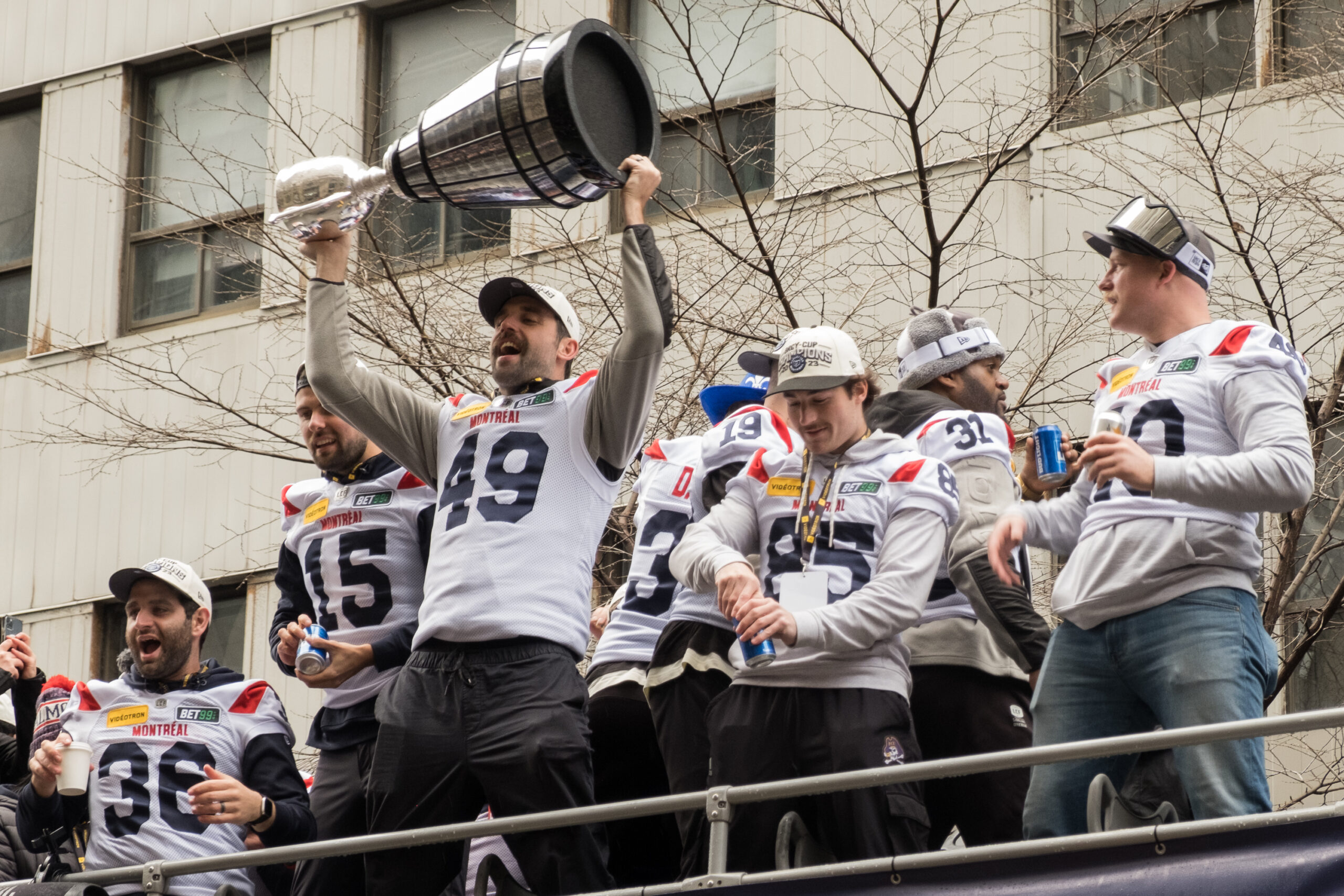The Montreal Alouettes defeated the Winnipeg Blue Bombers 28-24 in the 110th Grey Cup final.
The 110th Grey Cup, held on Nov. 19 in Hamilton, was a thriller. The Montreal Alouettes quarterback Cody Fajardo found wide receiver Tyson Philpot with only 13 seconds remaining to give the Alouettes the win by a final score of 28-24. This win came at the expense of the heavily favourite Winnipeg Blue Bombers, who beat Montreal in both of their regular-season matchups.
Thousands of Montreal Alouettes fans attended the team’s victory parade last Wednesday. It was the first championship parade in the city since 2010, the Alouettes’ last Grey Cup win. Following safety Marc-Antoine Dequoy’s emotional post-game speech, Quebec flags filled the Quartier des Spectacles’ Parterre, where the final celebrations took place.
The underdog mentality
“To see [the Alouettes] play this year was a model of courage and tenacity,” said Claire, a lifelong Alouettes fan. This victory is the sweetest she experienced: “…nobody thought they would win, and they did,” she said with emotion.
Another fan by the name of René, has been getting season tickets for over ten years during the early 2000s. However he did not have a lot of faith earlier in this season. When the Alouettes won their last five regular-season games, he started believing in the team’s chances. “Even if they played a good game in Hamilton and lost, it would have been a good accomplishment. But they were able to win, so it is incredible,” he said.
The team in elation
Only one player from the 2010 championship-winning team was still with the Alouettes this year, former Concordia Stingers player Kristian Matte, and it was a special moment for the guard. “I have been playing football for 30 years. It is the first time I won a championship as a starter,” he said in an interview with The Concordian, “so for me, it is an incredible and unforgettable feeling, and we have the best fans in the world.”
Defensive back Raheem Wilson had similar feelings and said it was the best moment in his football career. Luc Brodeur-Jourdain, the current offensive line coach and former CFL All-Star centre for the Alouettes, won two Grey Cups as a player with the team. He felt the same joy as when he had won as a player himself. “From the moment you step on the field, yes [it is the same feeling],” he said. “You’re like a kid; you feel the emotions.”
For general manager Danny Maciocia, this win is the consecration of a stellar career. He won the 2005 Grey Cup as the head coach of the now Edmonton Elks and stopped Université Laval’s hegemony in the RSEQ as the head coach of the Université de Montréal Carabins. “It’s probably the number one [career accomplishment] on my list by far,” he said. “As a Montrealer who grew up watching the Alouettes, it doesn’t get any better than this.”
Mark Weightman, the president and CEO of the Alouettes, was slightly more nuanced. “Every time you win a championship, it’s always gonna be the top, so I would put it right there with all the other rings,” he said. A Concordia alumnus, Weightman first joined the Alouettes in 1996. He worked his way up the team’s hierarchy, eventually becoming president and CEO in 2013, until he was replaced in 2016. He came back to his old role earlier this year.
